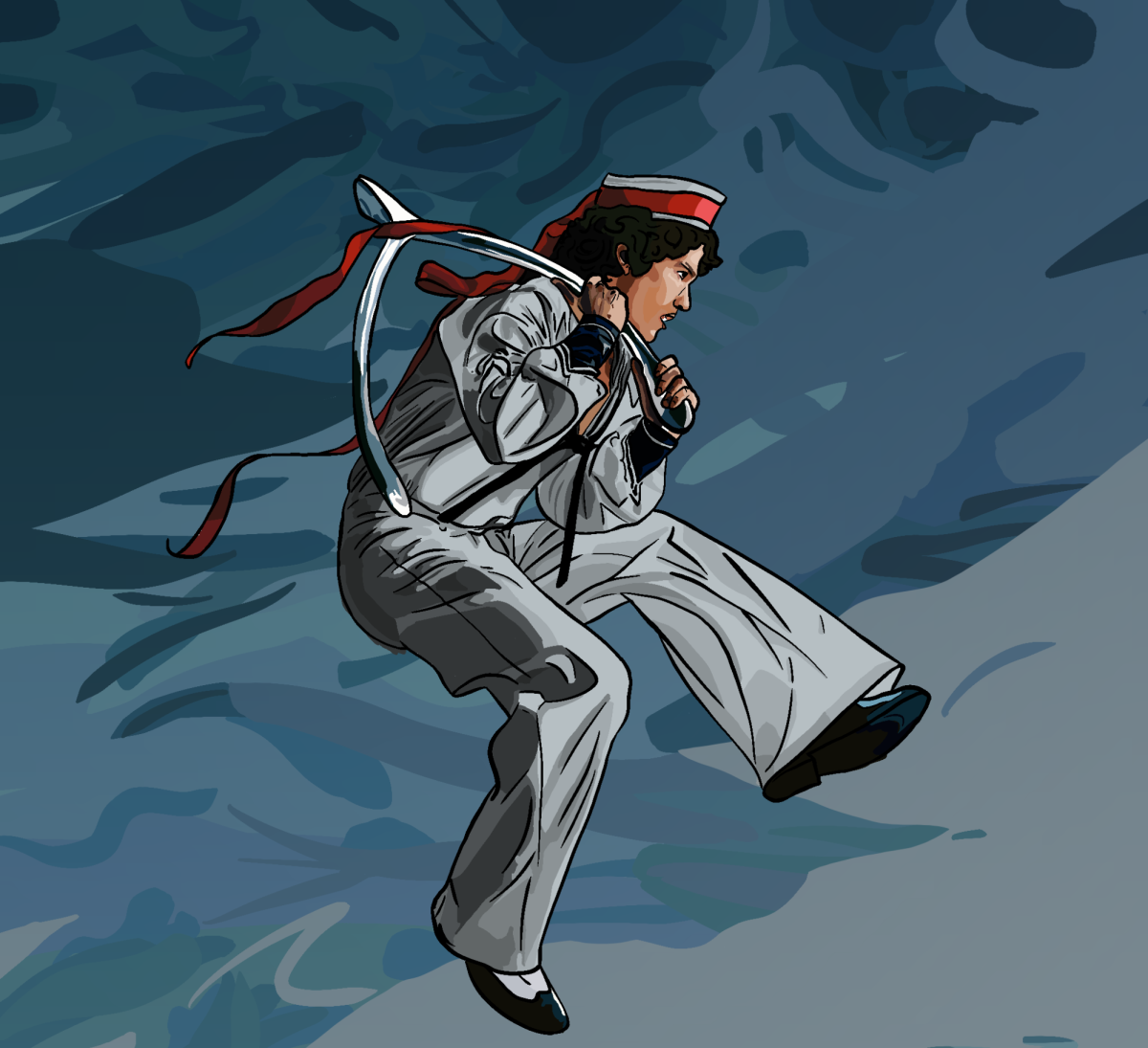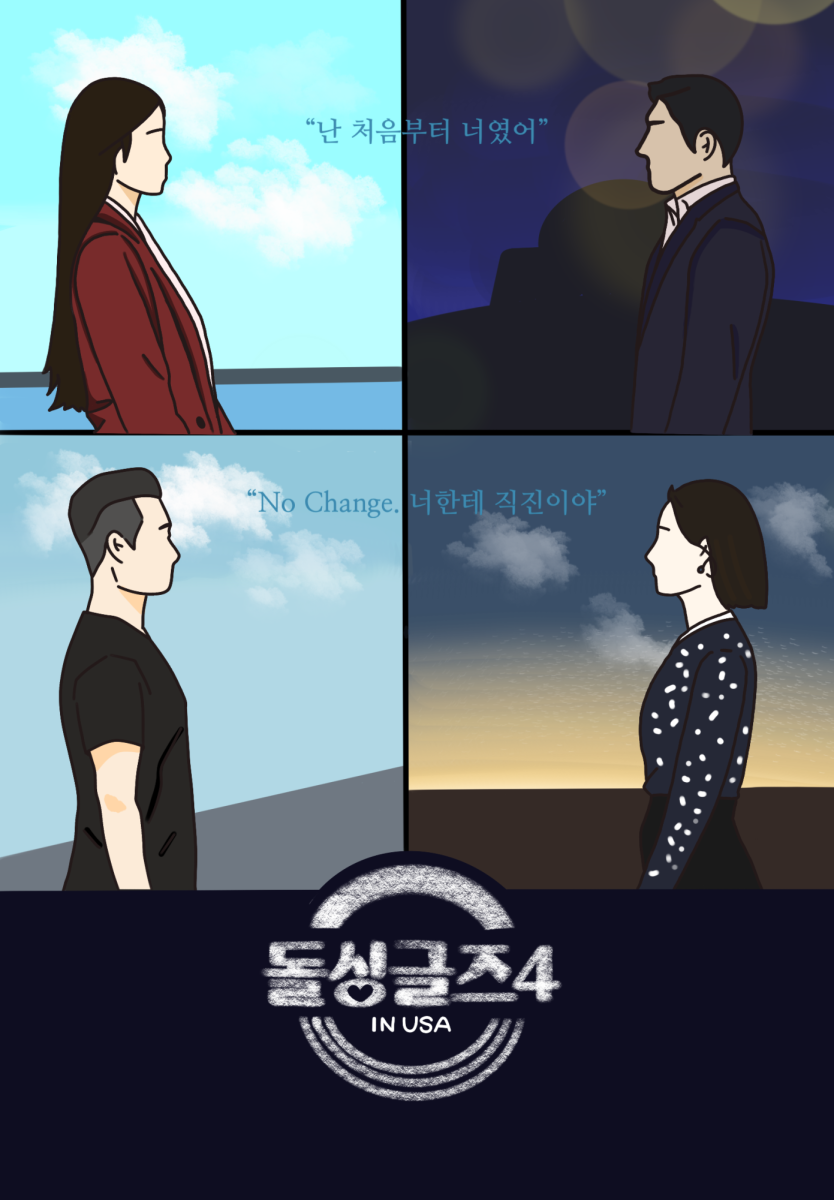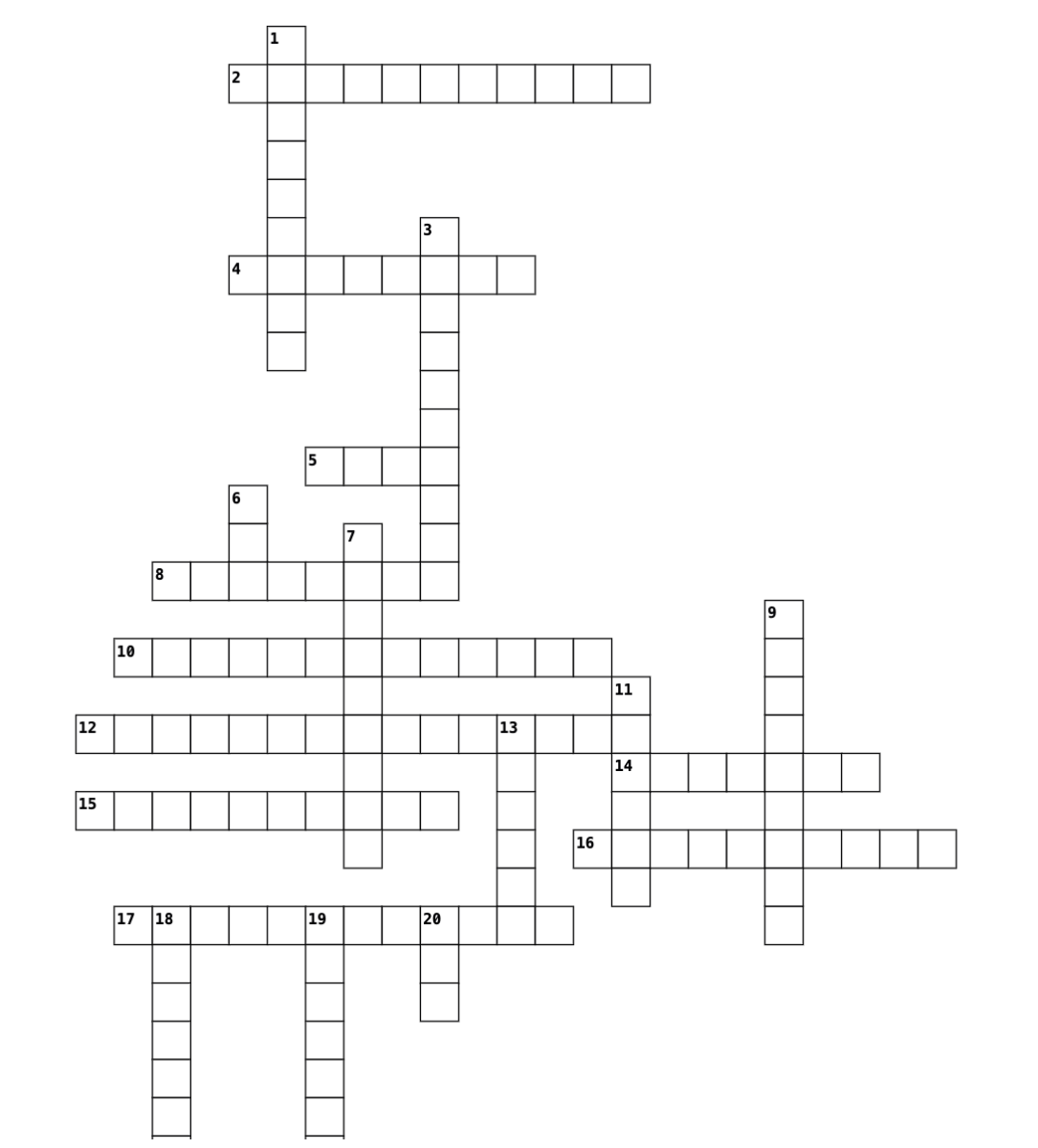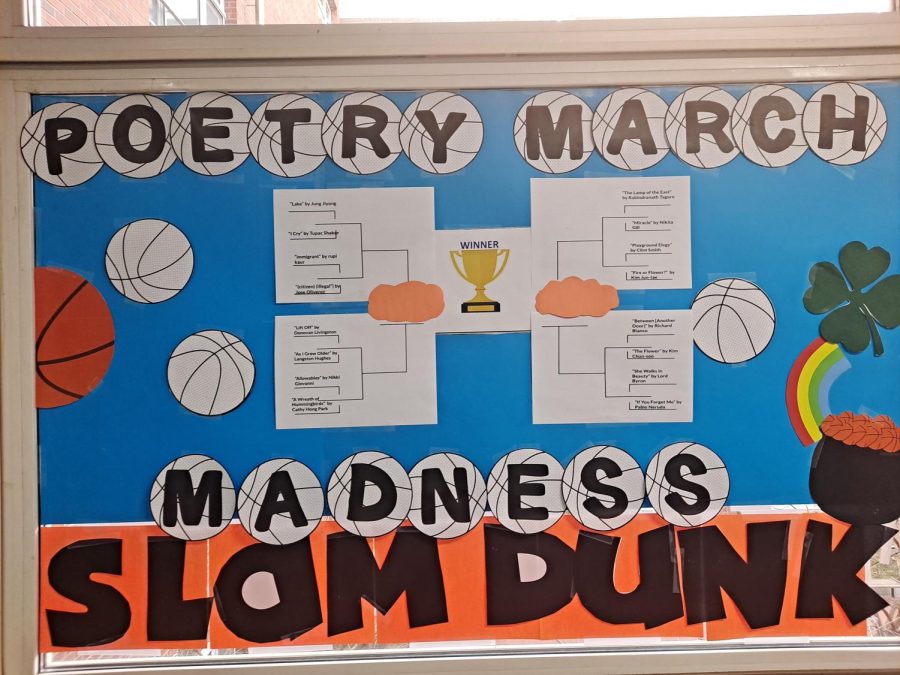Students Were Madly in Love with Poetry
Middle School Enjoys Poetry March Madness
The board in front of the second floor window displays the winning poems and the lists! Photo by Jessica Woo.
April 19, 2022
Mr. Jolly’s afternoon announcements leave suspense hanging in the air in the upper-grade level classrooms. As each victorious lyric is announced, the school day draws to an exciting close, and the halls are filled with yells of both victory and defeat. Throughout the previous month, March Madness brought up a sensation of poetry syndrome for both middle and high schoolers.
March Madness originally began as a system for predicting NCAA basketball brackets but has spread through our school in a different way – in the form of poetry. Sixteen poems compete against each other for the title of “best poem.” Before the tournament began, students read the poems in each match-up and voted on the pieces that they thought were the best. Then, participants attempted to guess all of the winning poems correctly, which could help earn five bonus points. If you guessed the final winning poem correctly, then you would get three bonus points.
Secondary English teacher, Ms. Butcher, commented, “Students usually don’t enjoy this unit, but this March Madness has helped students to both read and enjoy the concept of poetry. This also helps students to get engaged and to just have fun while reading!”
These poems aren’t just a fun competition for students; they also have important lessons in them. Poems such as “(citizen)(illegal)” portray how simply being a different ethnicity in the wrong place can be considered “illegal” in our society today. Olivarez, the poet, touches on his experiences with being Mexican-American, and his experience with stereotypes that pit his race against the states. Through these poems, students both enjoyed and learned essential lessons that reflect new insights and pre-existing issues. Tommy, a freshman, added that: “These poems all have messages that the author wants to tell us, so I think that part is what helped us to see past a Korean perspective.”
The Poetry March Madness has helped students to learn new devices and moral lessons as poets. By voting for their favorites or discussing new poems with each other, students are able to grow through the world of poetry.





















































Justin • Apr 21, 2022 at 7:34 pm
I actually won! I almost got a perfect bracket 🙂
Ms. Butcher • Apr 21, 2022 at 7:33 pm
Great article! Thanks for showcasing a fun, educational event!
Bryan Lee • Apr 21, 2022 at 7:32 pm
I got 14/15 cause I forgot to write one 🙁 can not wait for next year.
Sophie • Apr 21, 2022 at 7:30 pm
Ugh I almost won the poetry March Madness! I’m so excited for next year’s poetry March Madness!